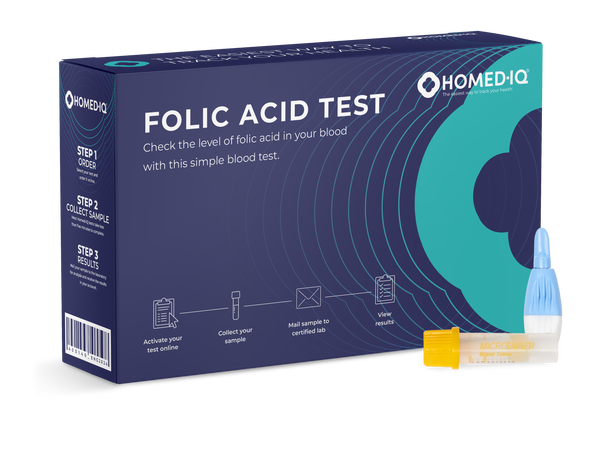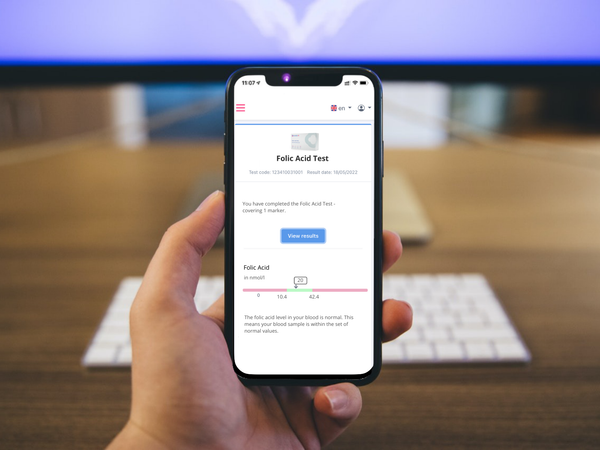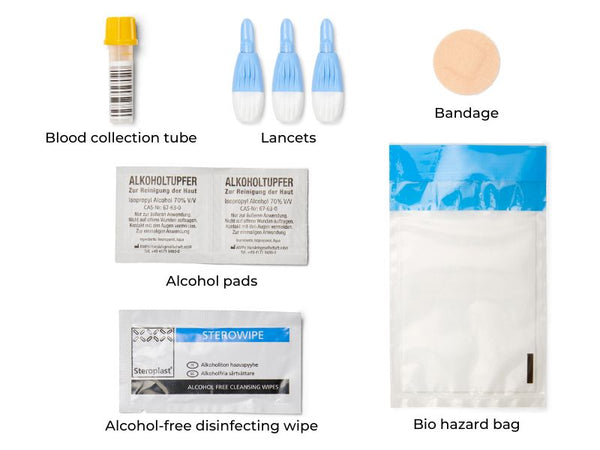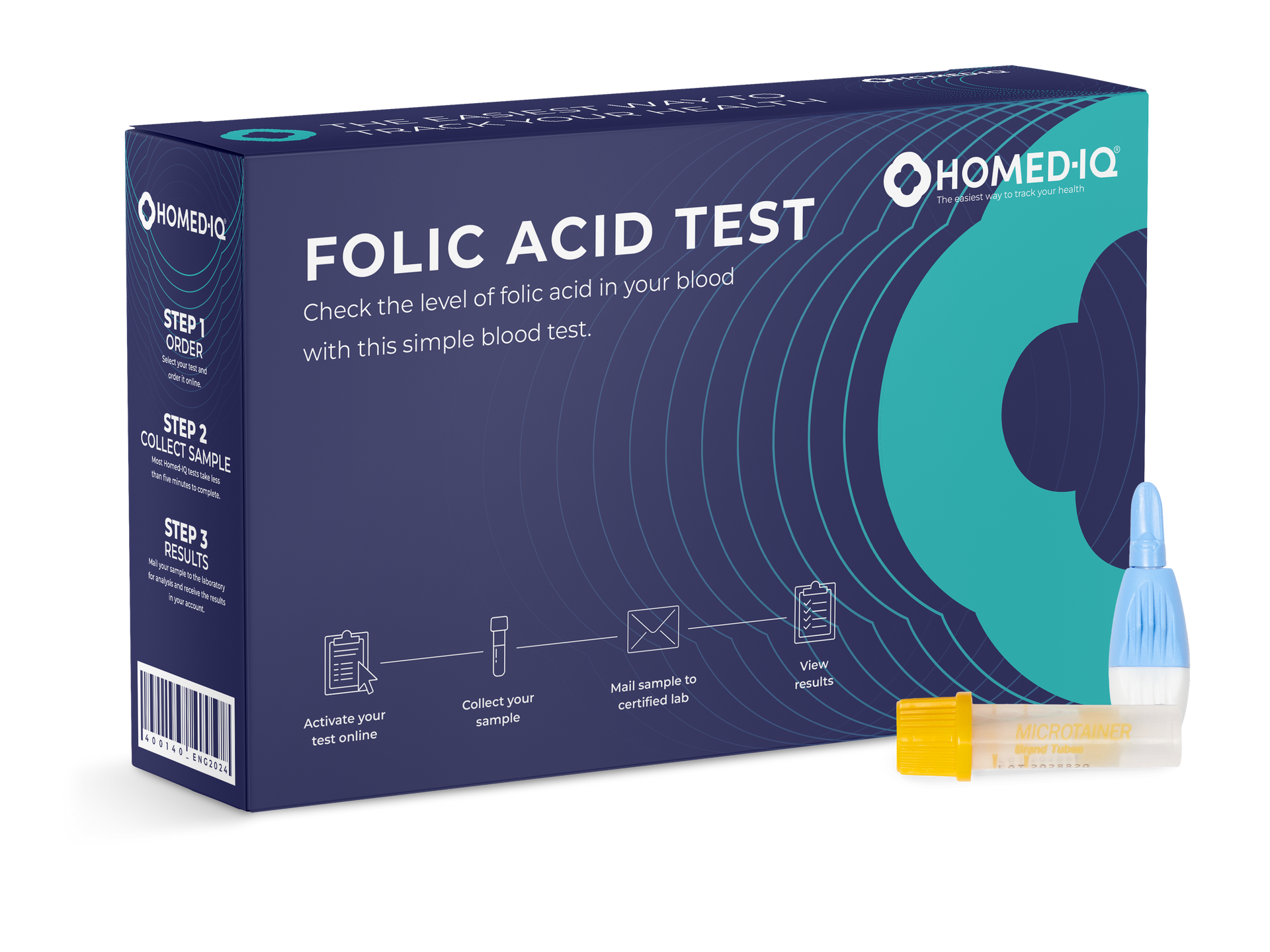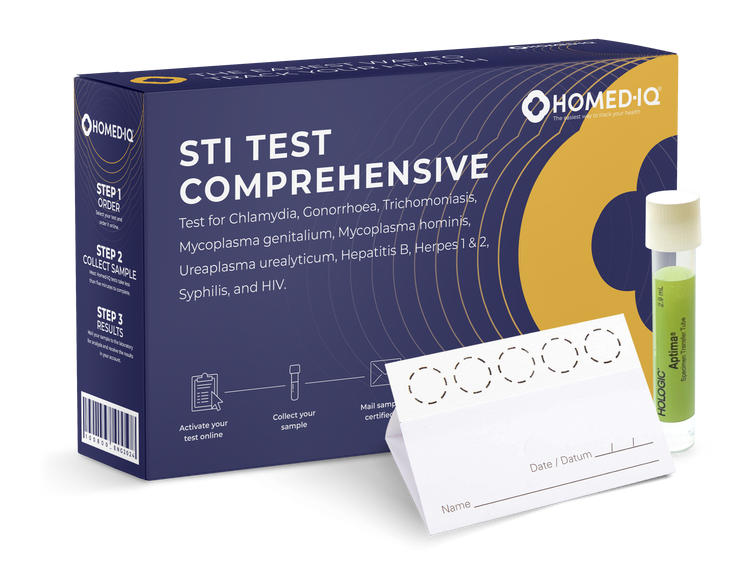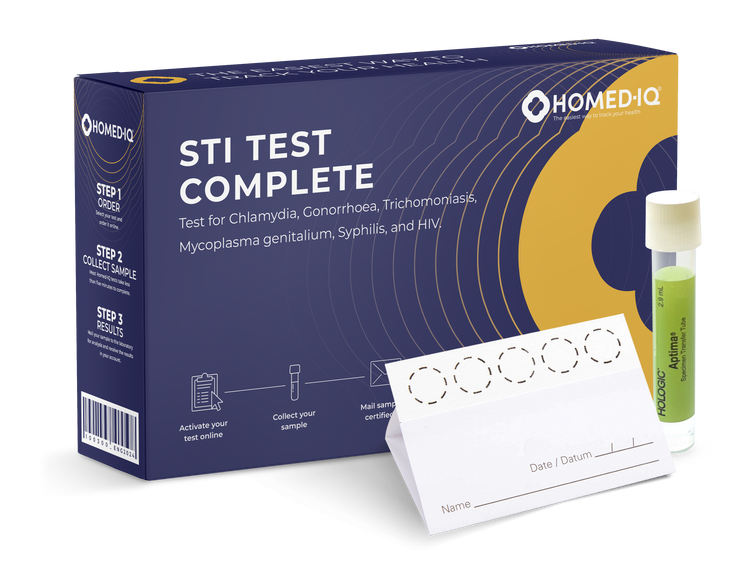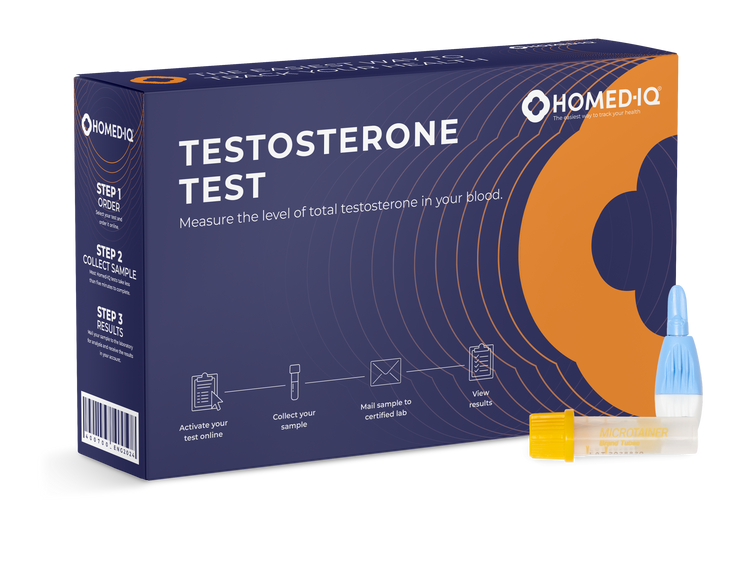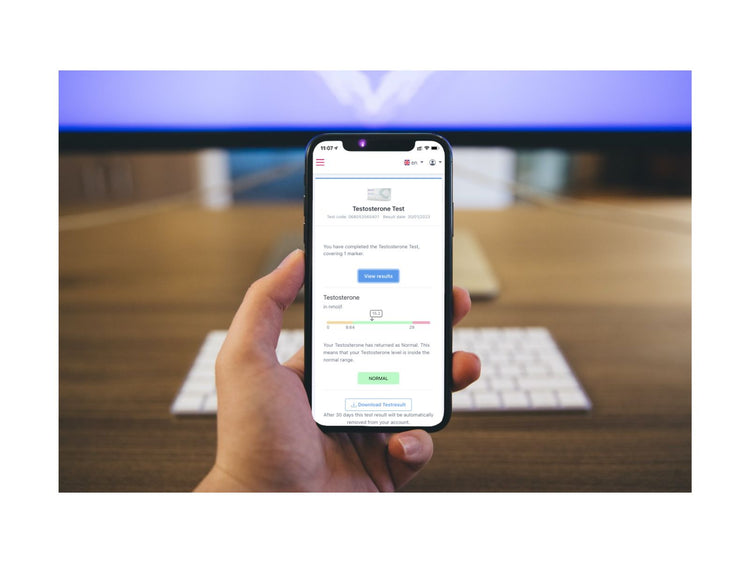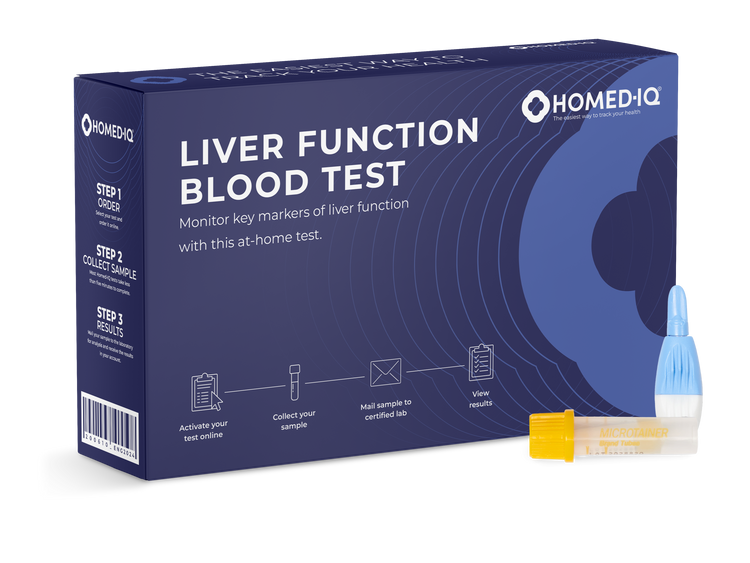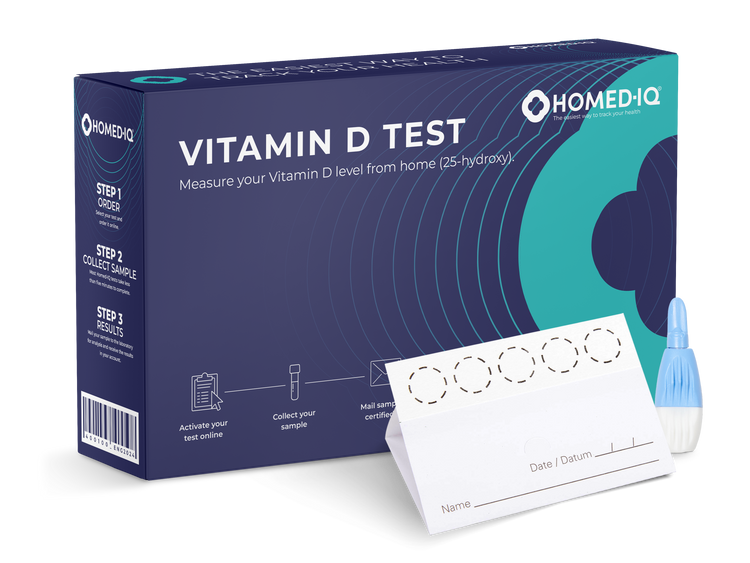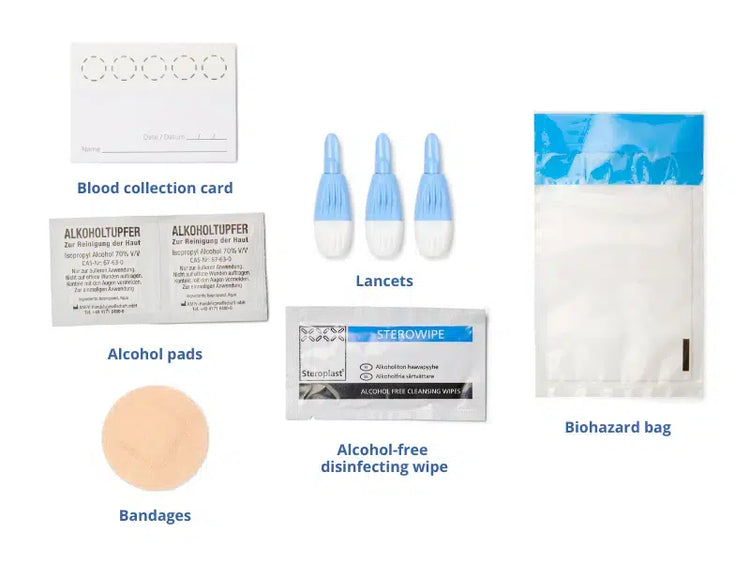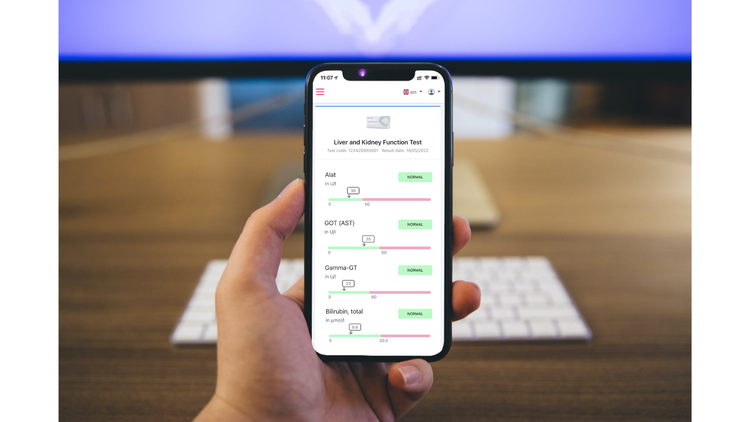Folic Acid Test
FREE SHIPPING
Folic acid, also known as vitamin B9, is a water-soluble B-vitamin that plays a fundamental role in many essential bodily functions. Folic acid is crucial for DNA synthesis, cell division, and the production of red blood cells. Folic acid is especially vital during periods of rapid growth and development, such as pregnancy. Adequate intake of folic acid is essential for maintaining overall health and preventing certain birth defects. This home blood test checks the level of folic acid in your blood.
Test mode:
Finger prick test
FAQs
What foods are high in folic acid?
How do I increase my folic acid levels?
Is folic acid the same as folate?
Can folic acid help prevent birth defects?
How much folic acid should I take daily?
What happens if you have too much folic acid?
Is folic acid important for overall health, even if I'm not pregnant?
How does it work?
-
![Woman in professional cozy kitchen with Homed-IQ test kit]() 1
1Order your test
Fast and discrete letterbox delivery
-
![]() 2
2Activate & take your sample
Video instructions included
-
![]() 3
3Laboratory analysis
ISO - Certified lab network
-
![]() 4
4Receive your results
Easy access through mobile
